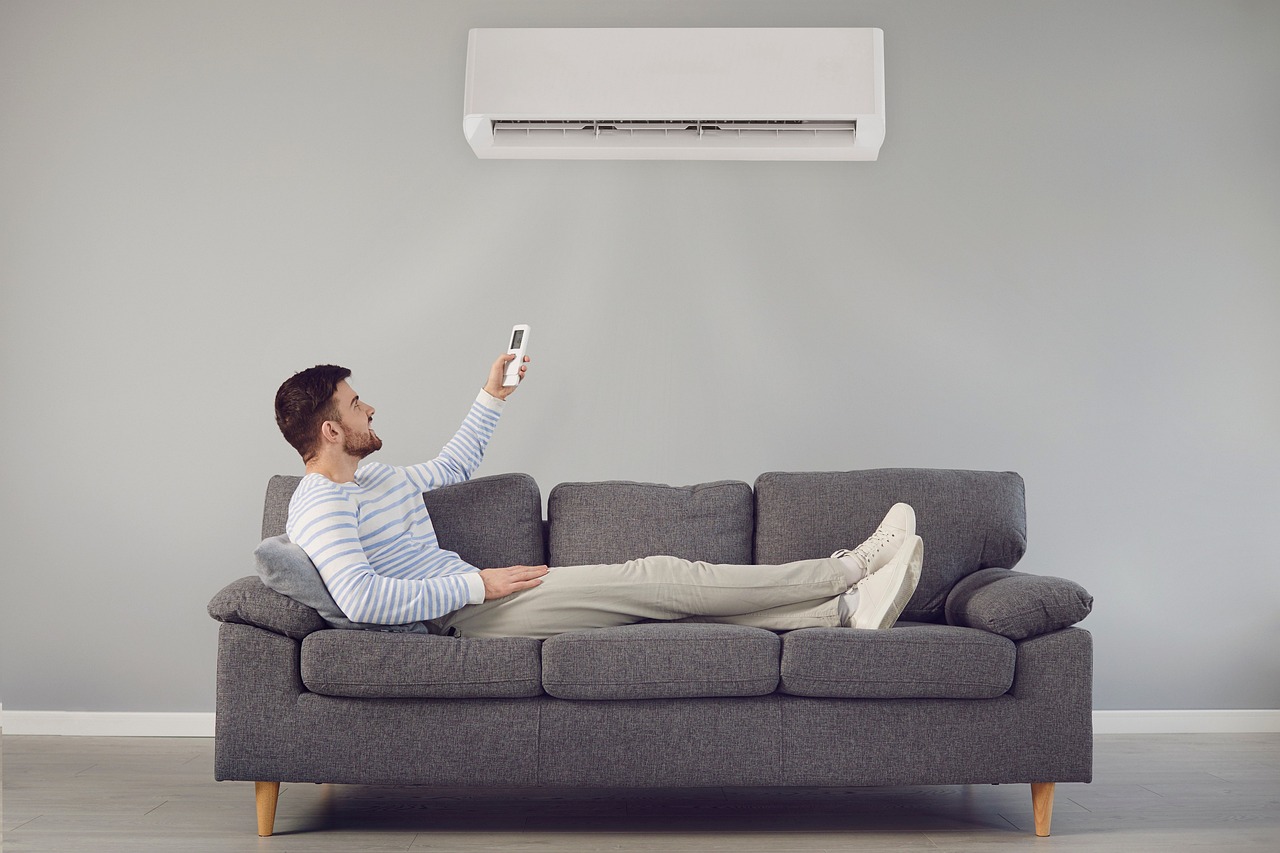An AC system leak is often not a major issue, but if the problem is not resolved, it can damage the entire system. To make matters worse, it can often be confusing to determine why your AC is leaking and how to fix the issue. Here are a few tips to help you figure out how to stop the air conditioner from leaking.

Identify the Problem
The AC unit is designed to have water drainage, but it should not leak. The most common sign of an air conditioner leaking is water on the floor or water spots on the exterior of the indoor unit. There are a few other ways to tell if the AC system is leaking water. If there are unusual sounds coming from the system, it could result from leaking. For example, when there is a leak in the air conditioning system, it makes a hissing sound.
Common Reasons for AC Leaking
Here are the common reasons why air conditioning units leak:
Disconnected Drain Pipe
The drain line is designed to remove any condensation in the indoor unit. However, if the drain pipe gets disconnected, it can lead to water leaking inside the AC unit. The AC unit tends to vibrate during function, and this vibration can cause the drain line to become loose or disconnected.
A disconnected drain line may also be caused by improper installation of the unit. You must ensure the drain line is tight and connected to the AC unit. However, if the drain line is connected and the condensation is still not getting through, you may require an HVAC professional to inspect the unit.
Not Enough Refrigerant
If the AC is not blowing cold air, it might result from low refrigerant pressure. When the refrigerant is low or there is a refrigerant leak, the AC system can make a bubbling or hissing sound. It is important to get the refrigerant replaced promptly to prevent the AC from undergoing more damage.
Frozen Coils
One reason the air conditioner is leaking could be frozen evaporator coils. When adequate air cannot pass through the filter, the coils freeze. As the frozen coils thaw, water will drip into the condensate pan and eventually overflow, causing a leak.
Clogged Drain Line
Dust, debris, and other types of contaminants can cause the drain line to clog and prevent water from being expelled outside the house. This results in the drain pan overflowing and water leaking inside the building.
To prevent damage to your system, floor, and ceiling, the drain line should be cleared. Although you can clear the drain pipe yourself, in some cases, you may need the services of an HVAC technician.
Contact an HVAC Technician
Water damage can not only ruin the walls of your home or office, but it can also cause excessive damage to the components of the AC system. If you think your AC has a leak, you should contact an HVAC technician to schedule a service. Visit housepro.net/ac-repair/ to learn about AC repairs.



